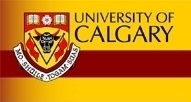Astronomy ASTR
Instruction offered by members of the Department of Physics and Astronomy in the Faculty of Science.
Department Head - A.R. Taylor
Note: For listings of related courses, see Astrophysics, Physics, Medical Physics, and Space Physics.
Junior Courses
Astronomy 205 H(3-0)
The Modern Universe
A comprehensive, descriptive survey of modern astronomy which focuses on the development of our present views of the universe. Topics include: solar system exploration by telescope and spacecraft; the birth and death of stars; the violent interstellar medium; the milky way and other galaxies; cosmic rays, pulsars and supernovae; the concept of a black hole; exploding galaxies and quasars; the beginning and end of the universe; the possibilities of extraterrestrial life and interstellarcommunication. The opportunity for a field trip to the observatory will be provided.
Note: Not open to students with credit in Astronomy 205, 211, or 213.
Note: Not recommended for physical science majors.
Astronomy 207 H(3-0)
Introduction to Astronomy I - The Solar System
A comprehensive, descriptive overview of all aspects of the solar system covering how ideas have changed from ancient times to today. The latest discoveries from space probes. The theory of the formation of the solar system. Similarities and differences between the various members of the solar system. Topics include: the electromagnetic spectrum; telescopes and detectors; eclipses; retrograde motion; Kepler's Laws; the Terrestrial and Jovian planets; asteroids and comets; and the Sun. Recent discoveries of extra-solar planets and the possibility of extraterrestrial life. The opportunity for a field trip to the Rothney Astrophysical Observatory will be provided.
Note: Not open to students with credit in Astronomy 205, 211, or 213.
Note: Not recommended for physical science majors.
Astronomy 209 H(3-0)
Introduction to Astronomy II - The Cosmos
A comprehensive, descriptive overview of all aspects of the universe outside the solar system. The life cycles of the stars. Normal and peculiar galaxies. The size, motion, and fate of the universe. Topics include: the electromagnetic spectrum; stellar spectra; the magnitude scale; distance determinations; the interstellar medium; supernovae and pulsars; white dwarfs, neutron stars and black holes; dark matter; spiral and elliptical galaxies; quasars and AGN. Evidence for, and the central ideas of, the Big Bang. The opportunity for a field trip to the Rothney Astrophysical Observatory will be provided.
Note: Not open to students with credit in Astronomy 205, 211, 213 or Astrophysics 213.
Note: Not recommended for physical science majors.

